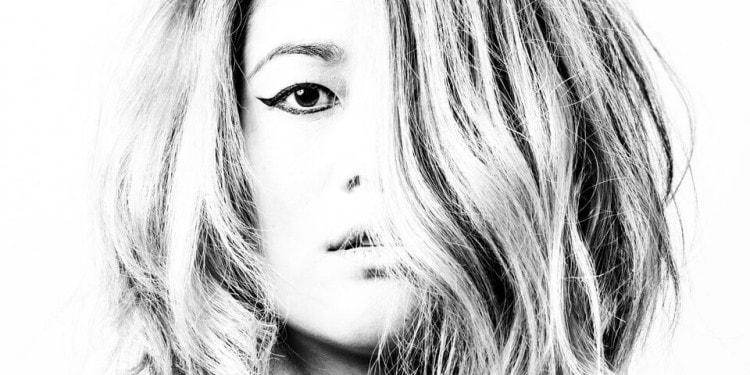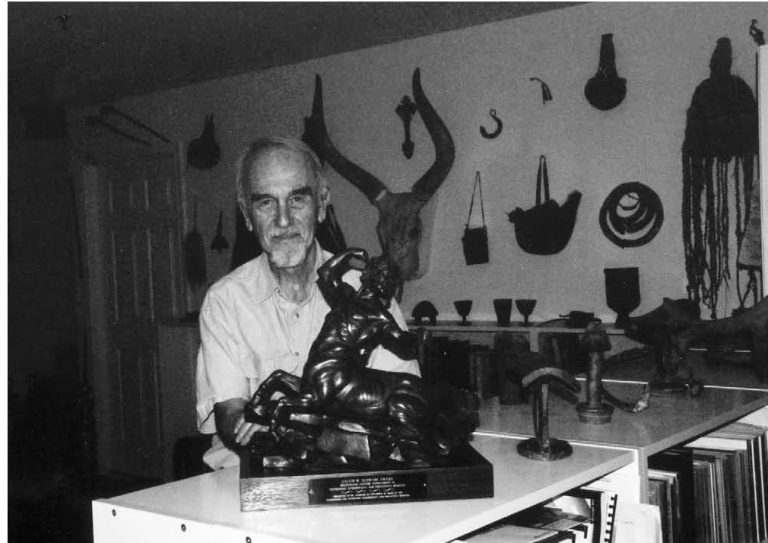It is now over a week since hundreds of thousands of women took to the streets of Washington D.C. and across the world to make the message clear: together we are strong! Our human rights have nothing to do with race, religion, gender or sexuality but Trump’s first week in office has, unfortunately, reaffirmed the importance of this plight. Reviving the ban on foreign aid for abortion counseling and pushing the ominous executive order, “Protecting the Nation From Foreign Terrorist Entry Into the United States” are just two decisions that have put the fears of the women marching into reality. Anti-inclusion and discounting women’s rights were among the many issues that brought women together despite, at the time, holding an open mind to what a Trump presidency would actually mean.
 Photo Credit: Mobilus in Mobili/Flickr
Photo Credit: Mobilus in Mobili/Flickr
One particular moment that stood out from the large crowd that day in Washington was a song performed by a group of women led by Connie Lim, A.K.A MILCK. Quickly going viral, receiving over 14 million views on Facebook, Quiet, written by MILCK, has been dubbed the anthem of the march. Following a little digging, it is not long before one comes across the #ICANTKEEPQUIET campaign and the reason behind the flash mob choir during the march. As a means to speak out and communicate our struggles, MILCK, after facing her own battle with abuse and depression, hopes the #ICANTKEEPQUIET campaign will help people to not only speak up at a time of political turmoil but also create a collective community of strength and personal belief. Speaking to Impakter a few days after the march, MILCK explained her experience of the day, the significance of the campaign and her hopes for its future.
Describe your personal experience and observations during the march in Washington D.C.
MILCK: The march felt like I was hanging out with my good friends, it was very comfortable. People may have had different views on different issues, but the universal feeling I got was that everyone had felt fear in some way and they were trying to remedy that fear with hope. Everyone there was trying to be proactive no matter how differently we view the world. Even though there were so many people, I never felt claustrophobic. I heard a couple of stories that some people there were holding up hate signs but the few people holding up these signs were subsequently surrounded by women holding up signs of love, holding them just that little bit higher. I thought that was so brilliant because it was smart and peaceful way to diminish hate.
 Photo Credit: Mobilus in Mobili/Flickr
Photo Credit: Mobilus in Mobili/Flickr
How do you feel about the celebrity element of the march?
MILCK: I thought Ashley Judd’s performance was so moving; I couldn’t stop crying. And Sophie Cruise, just seeing this 6-year-old girl standing there with such confidence was amazing. She is such a great orator and she took these long dramatic pauses so the crowd could cheer, articulately saying things like: “My young friends don’t be afraid, there are people in this world with love in their hearts.” It felt like I was standing in front of the next Mother Theresa. But the one theme that connected the speeches was the idea that the march was the beginning and the hard work is ahead of us. It got me thinking about my role and place in society. I think women can help lead people into less fearful and divisive places; watching all those women on stage made me feel very sure of that. It also inspired me to not only be an artist but an artist who speaks about the world’s issues in order to try and help.
Related article: “PEACEFIRE: AN INTERVIEW WITH TOM ERBA”
What were your initial expectations with the song and the choir? Did you expect to have such a wide reaching impact?
MILCK: No, not at all, I feel very lucky and excited. Everyone is telling me to ‘ride the wave’. I have, however, always had a big vision for the idea and I have been working on the concept of thinking big for a while now. I think it’s important. As a product of abuse and depression, I had trouble thinking big for most of my life and it wasn’t until I met some great sister friends that things started to change. One of these friends happened to be Krista Suh who founded the Pussy Hat Project and we both are so in awe of how wide reaching our projects have become. I expected to promote healing with the song but I definitely wasn’t thinking it was going to go viral, I am still processing what that means. I do know that it is finally 100 percent me compared to the music I have created to please established music corporations.
 Photo Credit: Liz Anne Hill
Photo Credit: Liz Anne Hill
How did the idea for the project come about?
MILCK: I met this woman through serendipity through a friend of a friend, her name is Ana Ammann, and she is so humble. I have been working with her for a month now and I didn’t know that she founded the Rock ’n’ Roll Camp for Girls, which is this nationwide organisation in the U.S. that empowers young girls through music, it’s incredible. We decided to firstly create an interactive campaign using #ICANTKEEPQUIET where people can post stories and photos in a live thread to help people feel less alone. Ana has this beautiful relationship with her son, Henry, who is a young graphic designer and photographer. He was sitting there listening to Anna and I discuss how we were going to get the song out and he came up with the logo; that’s when I thought this is way bigger than me and we have to share it.
What do you hope to achieve with this campaign?
MILCK: I think it will become this ongoing project that I live with until I leave this planet. However, I think the first focus is answering requests from different groups across the world who have enquired about obtaining the sheet music to Quiet in order to create their own choirs. I was so inspired and honoured by these requests that I have decided to release the sheet music for free. I also aim to create some tutorial videos. I know a lot of choir directors already have copies and volunteered to digitize it so it’s a lot more streamlined and collaborative now. The stories that I am receiving are incredible, they really resonate with me and I would like to receive permission from the owners of these stories to write songs about them. I already have a few singles planned out for the year but in the future, as more and more stories are sent to me, I hope to write an #ICANTKEEPQUIET EP purely based on the subjects of the stories. It is just the idea of creating something beautiful out of something painful and I think that’s why so many people are resonating with this song because we’re in this grief cycle, trying to accept Trump’s presidency and thinking about how we now deal with the fear surrounding it.
 Photo Credit: Liz Anne Hill
Photo Credit: Liz Anne Hill
The marches around the world represented a huge diversity of issues; do you foresee the march as the beginning of permanent resistance under Trump?
MILCK: I see rallies and marches continuing with a lot of collaboration and communication. I think American culture has changed. Maybe I have lived in a progressive bubble too long; during Obama’s time in office there were obviously concerns but we always felt safe, there was a sense of hope and protection.
Do you envision all your future music this year to reflect the #ICANTKEEPQUIET campaign?
MILCK: There will definitely be new music and I’m already working with my team to figure out the end goal. Last year I wrote over 70 songs but because I chose to release Quiet, I am now only focusing on songs that could be fit for a playlist for the Woman’s March, for example. So there are some songs I’d like to release, single by single, and once the community builds and there becomes this undeniable demand for an EP or album that would be the next step. I am just going to read people’s reaction and figure out where to go from there.
https://www.youtube.com/watch?v=xjfbY3x64Zc
Twenty percent of all #ICANTKEEPQUIET merchandise goes to the charity, Step Up. Why is it important to you to support this particular charity?
MILCK: When I chose this organisation I was in tears reading about why they do what they do. They create these after school, mentorship programmes for girls between the ages of 13-18 and because I suffered domestic violence and an eating disorder when I was 14, I want to be able to give back to girls in that age bracket. I knew I was very vulnerable at that age and I didn’t receive the help I needed. It wasn’t until my mid-twenties that I decided to go out and find my own mentor. I think a lot of people forget to do that for themselves. The more girls grow up in hostile environments, the less likely that they will feel the need to take care of themselves or feel they deserve to do what they love. Step Up helps girls to pursue their passions, whether that is a certain career, going to university or providing them with a sense of empowerment to go after what they want out of life.
Recommended listening: “WHAT THE WOMEN’S MARCH ON WASHINGTON MEANS FOR CIVIC PROTEST“
More music from MILCK can be heard at https://soundcloud.com/milck






